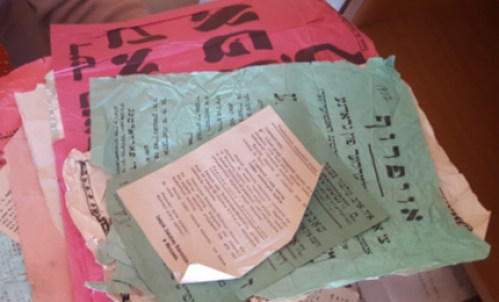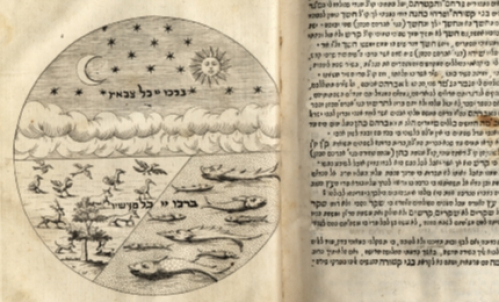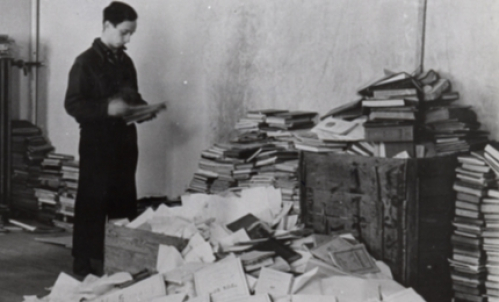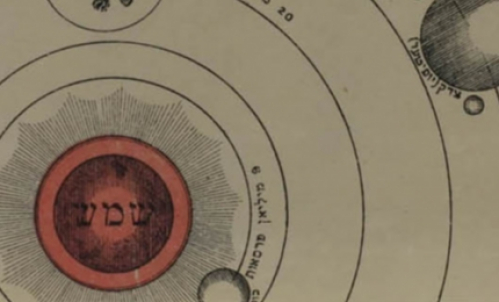Holocaust Archive
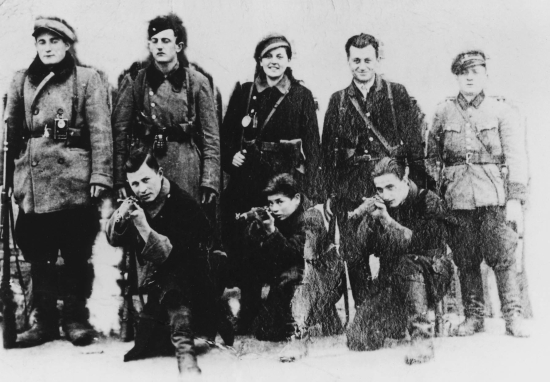
Collection)
Established in 1945, the YIVO Holocaust Archive holds close to 7 million pages of documents in more than 10 languages, covering events in all countries occupied by the Third Reich or where the circumstances of the Holocaust were experienced. The largest North American repository of original documents on the Holocaust, the Archive is also one of the most important of its kind in the world. The YIVO Holocaust Archive continues to expand each year, reflecting a steady annual stream of new archival donations.

concentration camp, March 1938 - January 1939. Daily record of prisoners kept by block leaders.
The Archive includes original handwritten Holocaust diaries, survivors’ testimonies, documents created in the ghettos and concentration camps, official records of Nazi government agencies, files of Jewish wartime organizations contacted by refugees seeking to escape from Europe and to find shelter and freedom, and extensive documentation on the aftermath of the war reflected in records of the displaced persons camps in Austria, Germany, and Italy. The Archive also has approximately 20,000 photographs of Jewish life during and after the Holocaust, art works and artifacts, printed and handwritten music, and posters and broadsides depicting the resurgence and renewal of Jewish life in the DP camps.
YIVO was the first organization to begin collecting original documents on the Holocaust. In its nine decades of existence, the Institute has played an internationally acclaimed role in the development of Holocaust research and in the collection of evidence about the Holocaust.
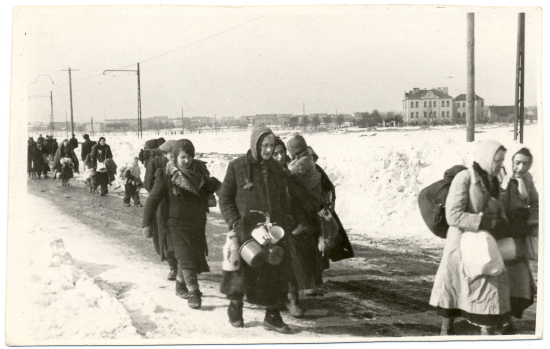
Chelmno death camp. Photographer: Henryk Ross. (RG 241 Zonabend)
From the beginning, the significance of YIVO’s collecting activities were widely recognized. At the Nuremberg Trials, YIVO documents were presented as evidence of atrocities perpetrated during the Holocaust. For 70 years, YIVO documents have also been used in legal proceedings and in war crimes trials in many countries. The YIVO Holocaust Archive has been cited in thousands of publications, and its resources used in numerous television programs and documentary films. Holocaust museums around the world turn to the YIVO Holocaust Archive each year to develop and enrich their exhibitions and their programs.

YIVO’s focus on collecting original documents, rather than reproductions, distinguishes its collection from other Holocaust Archives. The resulting evidentiary and artifactual value of the documents in the YIVO Archives is unparalleled. YIVO is also the only archival organization in North America to hold substantial original records of the Nazi government, and the only organization on this continent to hold original systematic archival records of Judenrat administrations, among them archival records of the Warsaw Ghetto, the Vilna Ghetto, and the Lodz Ghetto. Fragments of the Emanuel Ringelblum Archive of the Warsaw Ghetto (also known as the Warsaw Ghetto Oyneg Shabes Archive) were received by YIVO from Hersch Wasser, secretary of the Underground Archive. Nachman Zonabend, an inmate of the Lodz Ghetto, turned over files of the Judenrat to YIVO which he had hidden during the war. The Yiddish poet Abraham Sutzkever gave YIVO original documents of the Vilna Ghetto, including records that he rescued at risk to his life.
